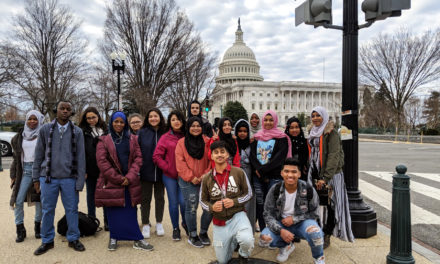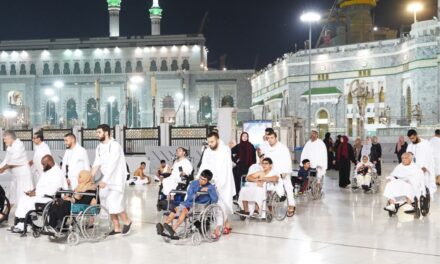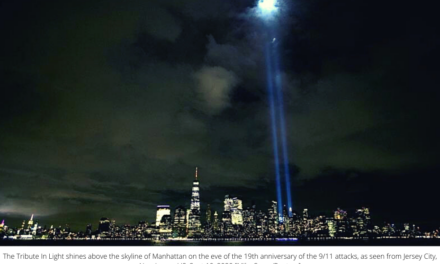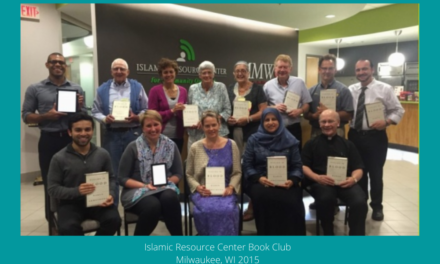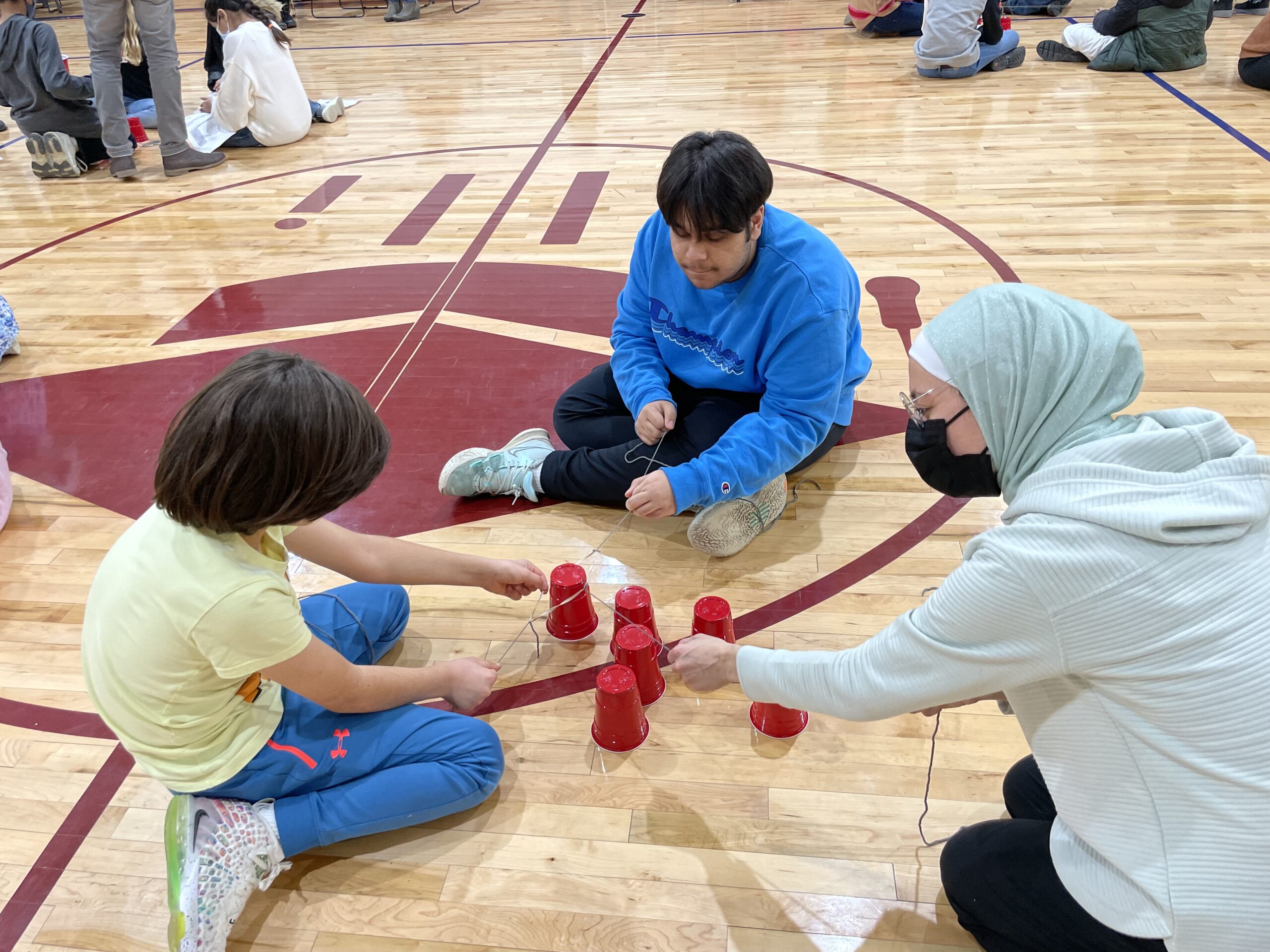
MMWC’s Youth Development Director Rawand Yazaw (right) facilitates as new “buddies” try a challenging game.
Milwaukee Muslim Women’s Coalition’s Be-a-Buddy Program, a project to connect re-settled Afghan children and teens with American peers, starts again Oct. 1 with its original successful formula and a new component—a sewing circle for Afghan and American women.
About 400 people who fled Afghanistan when the Taliban took over in August 2021 have now settled in Milwaukee and are coping with culture shock and the loss of suddenly leaving friends, family, home and all they have ever known behind. Children and teens have the additional challenge of navigating a new educational system with classes taught in a language they don’t yet understand.
In times like this, perhaps the biggest comfort is finding a friend, MMWC’s Youth Development Director Rawand Yazaw said in an interview Monday with Wisconsin Muslim Journal. That’s the main purpose of the Be-a-Buddy Program, she said.
MMWC is recruiting “Buddy” volunteers from 10 – 16 years old for the youth program and women to participate in the sewing circle. To volunteer, please call the MMWC at (414) 727-4900. Or use the volunteer sign-up link, or contact Yazaw via email at: ryazaw@mmwconline.org.
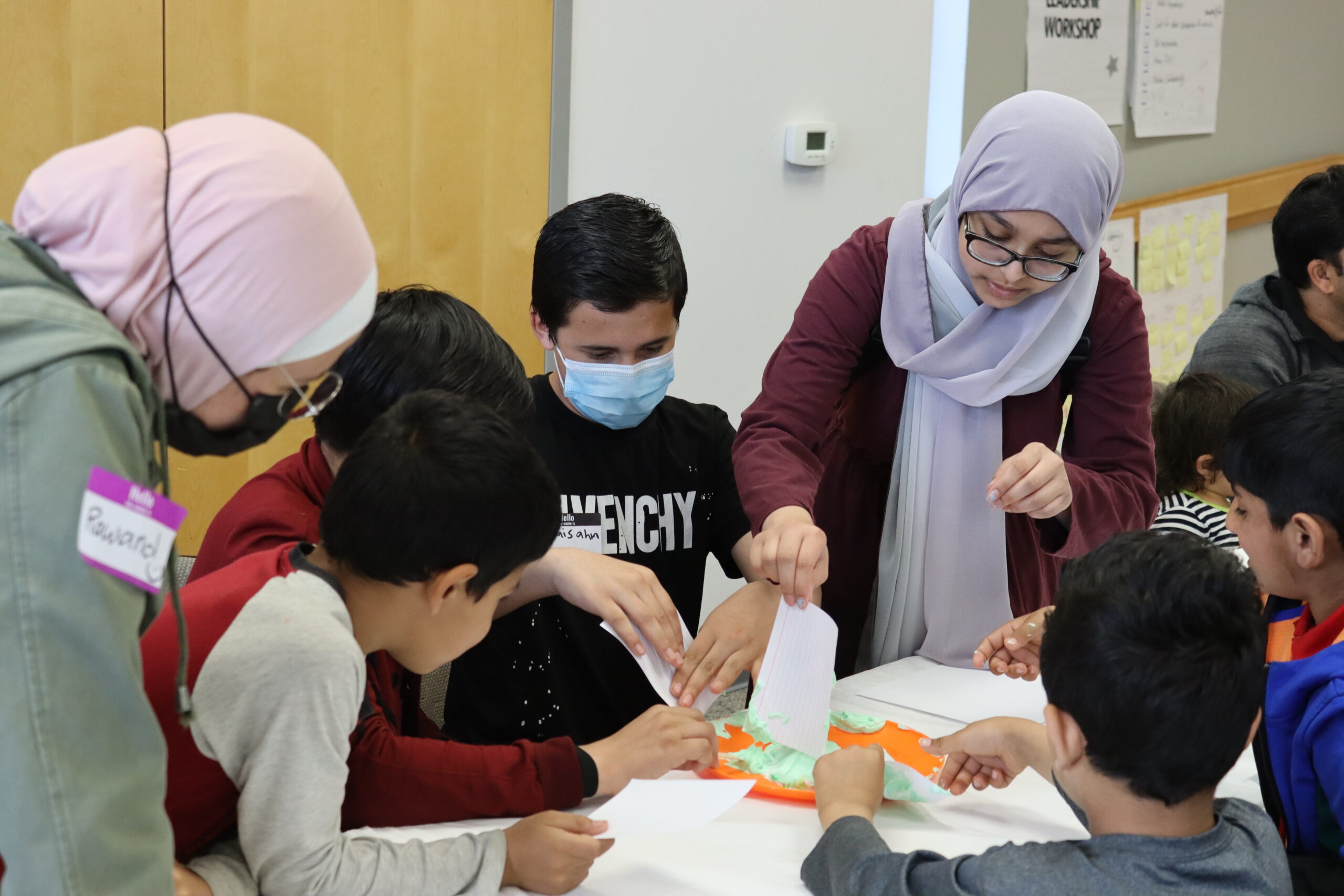
A positive start
At this time last year, MMWC staff created activities for Afghan children and teens temporarily housed in hotels during the process of resettlement. Volunteers transported youth and some parents to the Islamic Resource Center in Greenfield, where staff and volunteers engaged with them in fun activities.
At that time, the purpose was to help overtaxed Afghan parents who had immigration paperwork to complete and children with nothing to do, explained Janan Najeeb, president of Milwaukee Muslim Women’s Coalition. This effort to fill the gap sparked an idea for a program that went beyond meeting Afghan evacuees’ basic needs. MMWC staff realized the youth who fled Afghanistan needed help creating social connections in their new home.
“I worked in a refugee camp in Jordan before I came to the United States and the emphasis is always on addressing immediate humanitarian needs—housing, clothing, food,” said Yazaw, who came to Milwaukee two years ago to pursue a master’s degree in the University of Wisconsin-Milwaukee’s Sustainable Peacebuilding Program. “There is seldom attention to the emotional needs of those individuals who carry with them a tremendous amount of trauma. They have desires, dreams and hopes.”
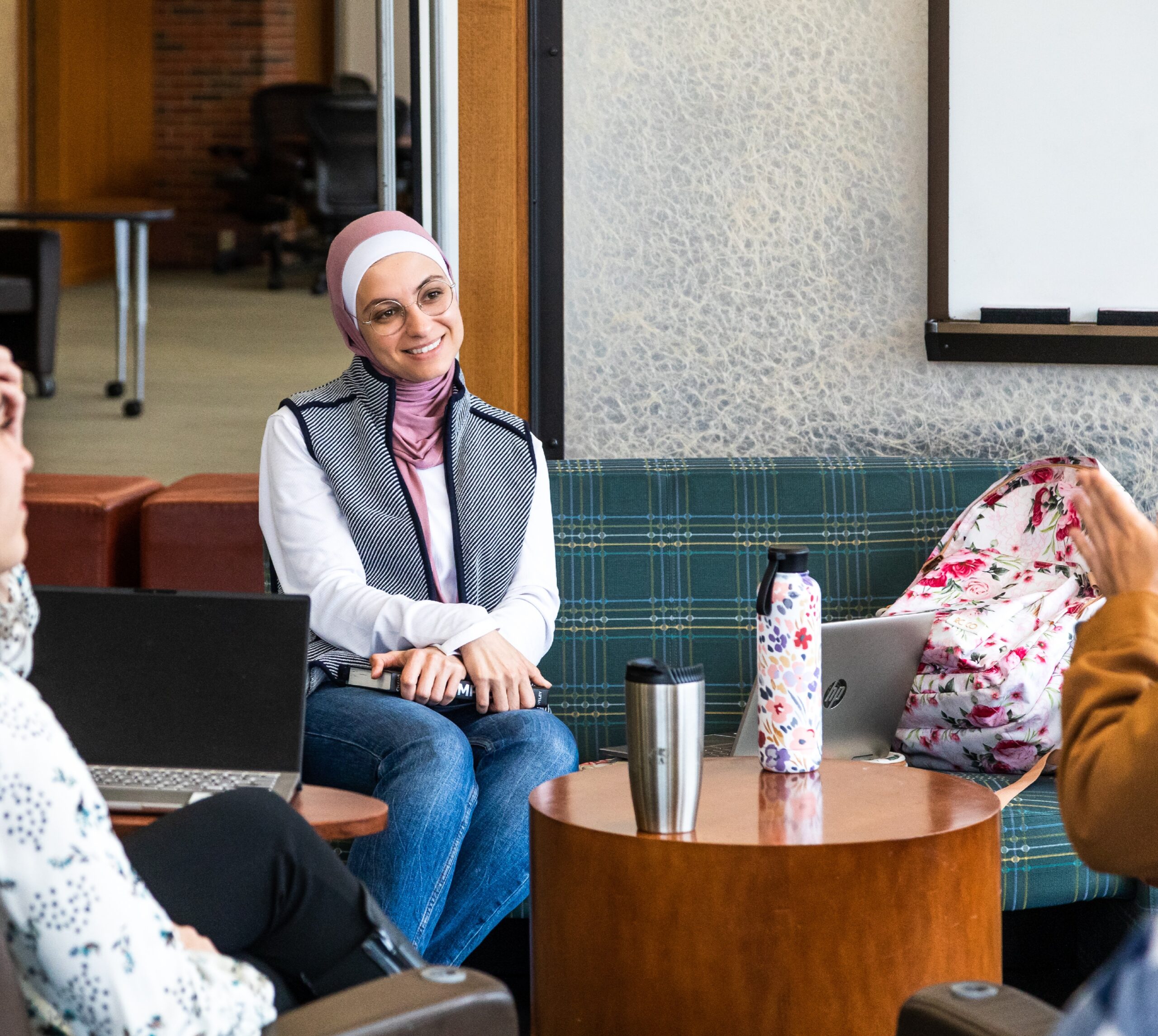
About 35 Afghan youth and 35 American youth volunteers participated in the first round of the Be-a-Buddy Program, which ran from mid-January through March and, after a pause for Ramadan, in May. The volunteers had an authentic experience of getting to know others from a different country and culture, and of making a big difference in other’s lives, Yazaw said.
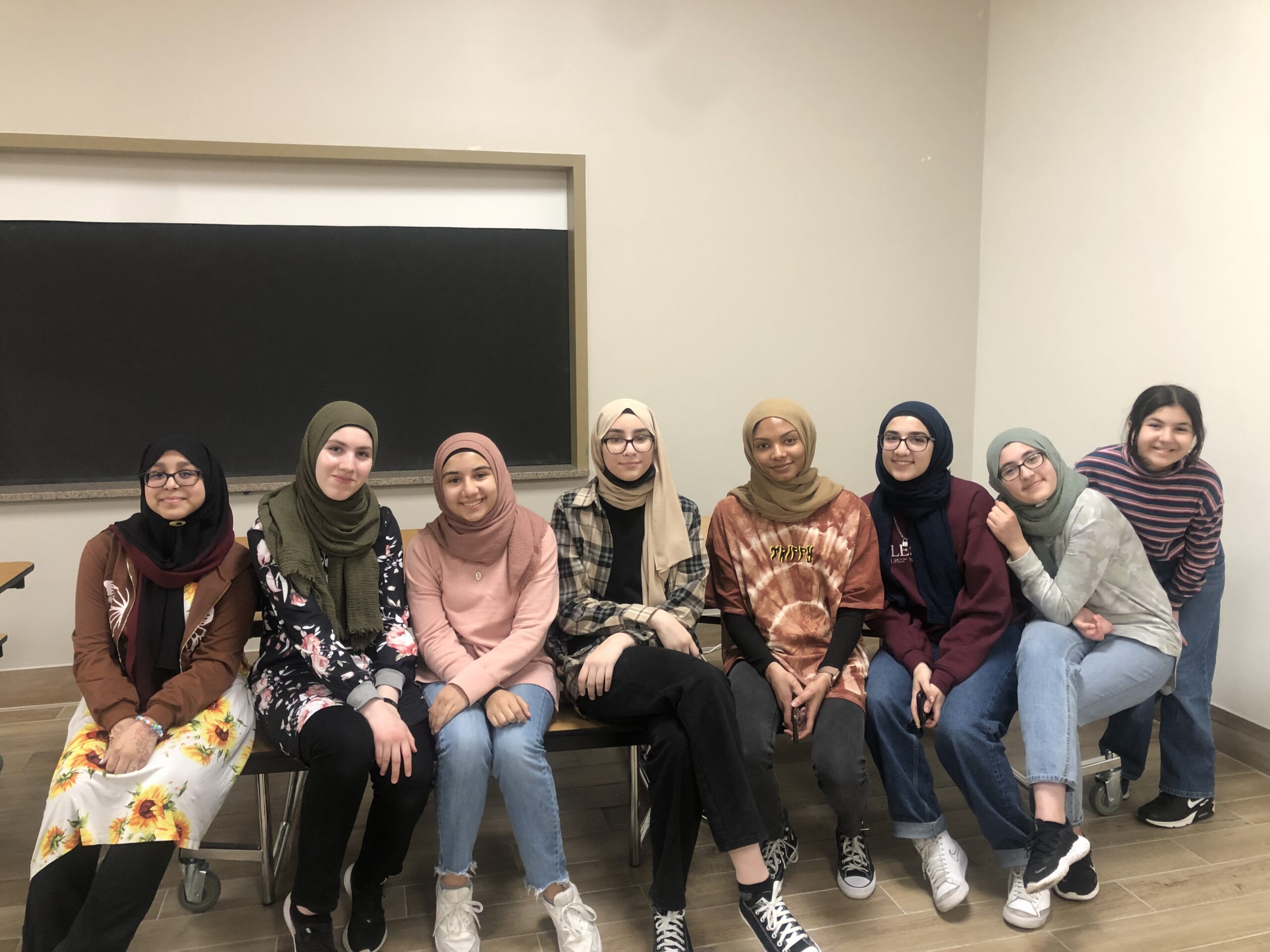
“I saw the difference in the people’s character from Day One, not only from the host community’s perspective, but also from the refugees,” she said. “This experience made them confront moral dilemmas they might witness at school or helped them investigate solutions and employ innovative thinking. They were in situations where they had to figure out how to communicate with a person who didn’t understand anything they were saying, who has a different culture and language.
“I saw them exchange numbers or take pictures together and become friends, then the next week when they met, they were hugging each other. At the beginning, we had activities to help the groups mix but soon they were doing it naturally. This program offers strong proof of what community organizations can do.”
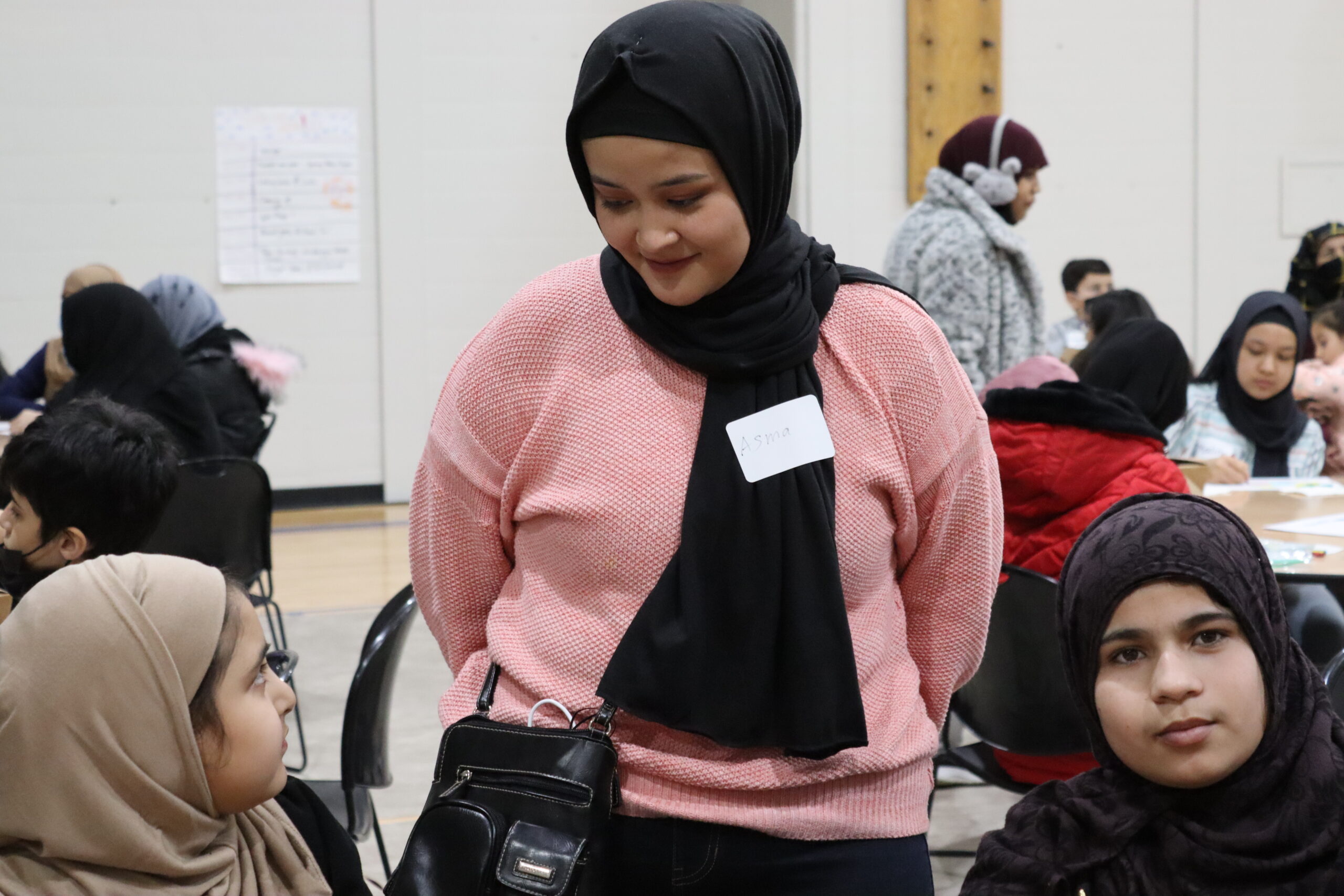
How it works
MMWC’s Be-a-Buddy Program consists of workshops from 1 – 4 p.m. every other Saturday beginning Oct. 1 at Hamilton High School, 6215 W. Warnimont Ave., Milwaukee. Afghan and American youth, most ages 10 – 16, will join together in recreation, reading and team building activities, games, sports and art. “We will do some tutoring and homework, and focus on English,” Yazaw added.
A new component to the program will create parallel opportunities for Afghan and American women to make new friends through sewing lessons. An instructor from Hamilton High School will teach sewing to Afghan women and the American volunteers who join in the activity.
Just like the program for youth, the sewing program creates opportunities for participants to make connections, Yazaw said. “It’s not just about sewing; it’s also about getting to know other moms.”
MMWC chose sewing as the main activity because they believe the Afghan women will value it, Yazaw said. “They’re very proud of their culture and love their traditional clothes,” she explained. “Sewing may be a mindful act that will keep them attached to their heritage and identity.”
Lunch is provided for all and offers a space for participants to get to know each other.
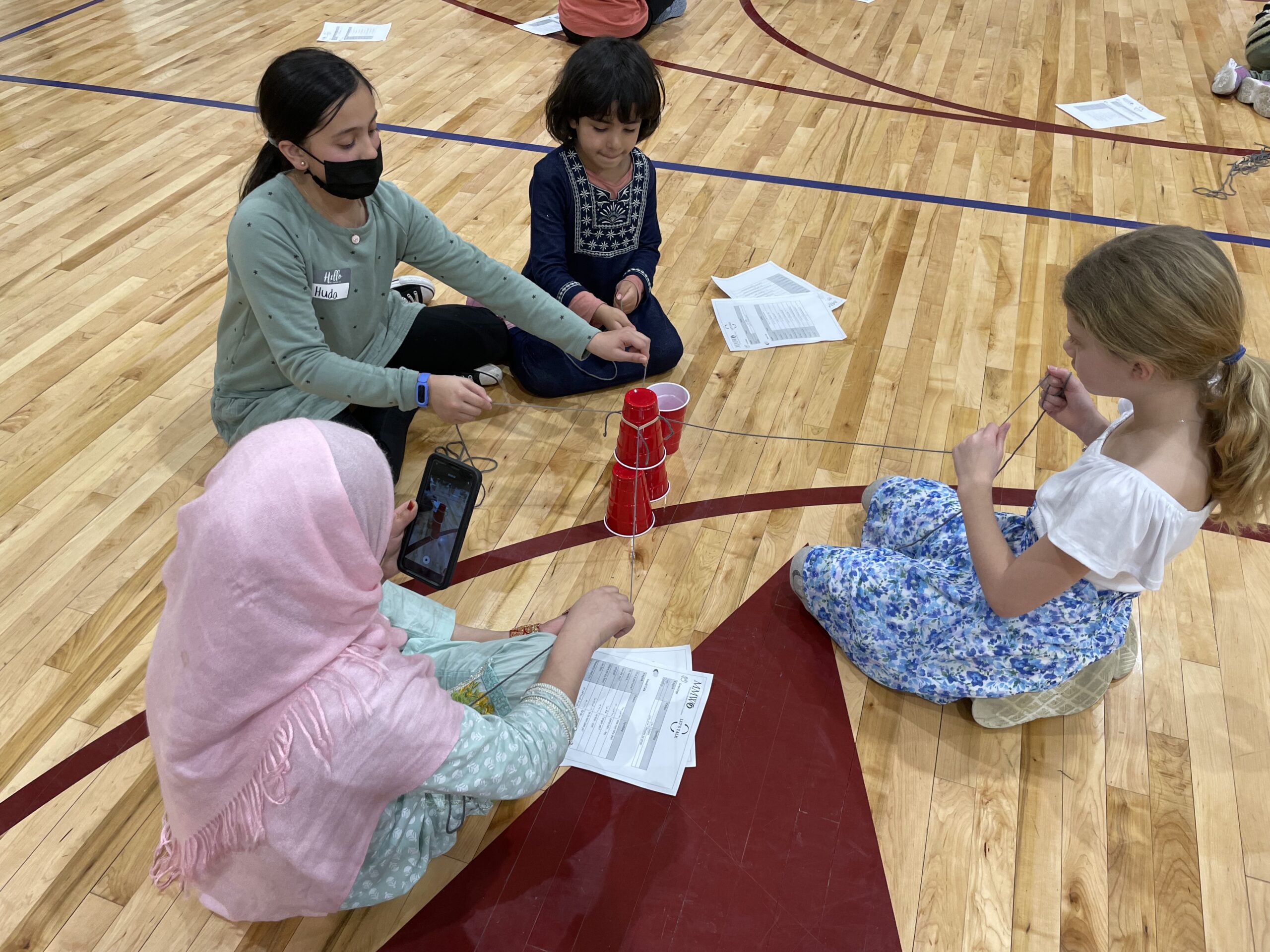
MMWC reached out to 90 Afghan families, inviting them to participate in the Be-a-Buddy Program. For this Saturday, 56 Afghan youth and 13 women have registered.
A dozen volunteers, including three women and 9 youth have registered so far. “We hope to get 30 volunteers” for Saturday’s launch, Yasaw said. Translators who speak Dari and/or Pashto, the two major languages spoken in Afghanistan, as well as English, will be on hand to facilitate communication.
“When people volunteer, they usually get directions from people,” Yazaw said. “But the Buddy program gives youth agency. They are the ones who lead. We don’t tell them what to do; we just give them the activities and leave them alone to communicate and do the whole thing. When youth see the kind of leadership roles they are doing, they keep coming back.”
MMWC sought several grants for program funding. “Funding is from Welcome USA in collaboration with Marquette University and the MKE REC Partnership for the Arts and Humanities,” Najeeb said. There are no costs to any of the participants.
Creating a sense of community for Muslim youth
While pursuing her graduate degree, Yazaw worked as in an intern at the Islamic Resource Center, translating for Arab-speaking clients in its domestic violence program, My Peaceful Home. She also worked on the development of a series of programs for young people.
Yazaw took on the newly created position as Youth Development Director at the beginning of September, after graduating from her master’s program at UWM. As an international student from Jordan, she is currently on an optional practical training visa that allows her to gain professional experience.
In her new post, she is responsible for the oversight of all the youth programs, from design and development through implementation. “We focus on leadership and programs that address health relationships, empowerment and self-image, basically trying to provide tools for youth to succeed.
“Knowing this position, like all titles, is temporary, once I leave, I want to leave behind a sense of community for youth, where they feel safe and supported, a place where they can just be together and support each other.
